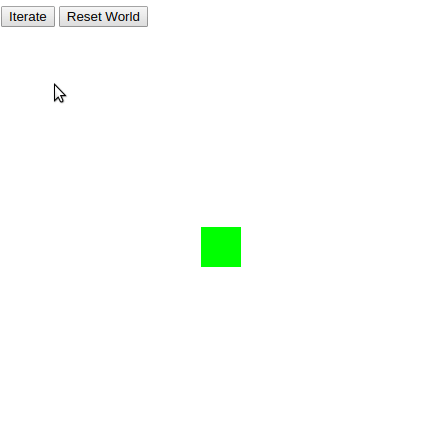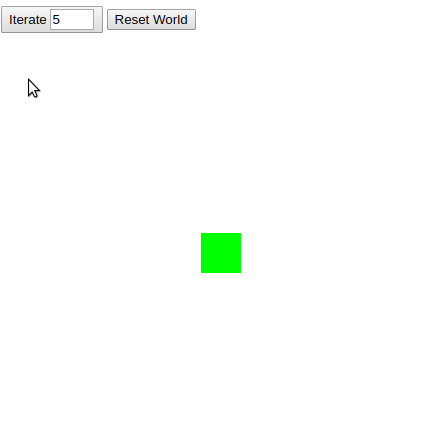Simulated World, Threading
(2020-01-08)
Currently, everything that happens on the C++ backend for Midgard is on a single thread. This includes the static file serving, the websocket handling, and the simulation itself all occur on a single thread. All computation is done at request from the browser, and can’t continue indefinitely, because the thread needs to return to waiting for the next thread.

Overall, it works, but the browser needs to request each successive step of the simulation. While the browser could request each new computation automatically, this would be problematic if multiple clients connect at the same time.
The C++ backend consists of three main classes. First, there is a WebServer, which handles receiving the connections themselves. Second, there is a WorldSim, which handles the simulation of the world. Finally, there is a WorldController, which connects the two. It interprets the JSON-encoded commands from the browser, makes calls into the WorldSim, and encodes the response to be sent back to the browser. This WorldController needs to own a separate thread, on which the WorldSim itself runs.
For each request, it is pushed onto a worker queue. The worker thread reads the request and parses it. Several iterations of the simulation can then be run, with the worker thread passing back status messages as it goes. This is show below, with a one second sleep added to make the changes visible.

There are several steps for improvement that will can be made later. Currently, the worker thread reads each message sequentially. Instead, a message to stop iterating or to reset the world should interrupt the current calculation.